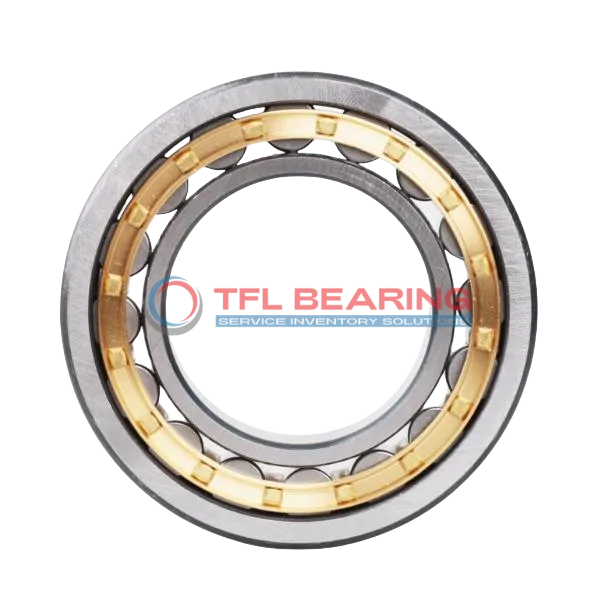
The NU 244 ECML is a single row cylindrical roller bearing with a 220mm bore and 400mm outer diameter, built from sturdy chrome steel. It handles combined loads up to 238500 lbf and runs smoothly at speeds up to 3000 RPM.
Its brass cage design ensures durability, while the open structure allows easy lubrication with grease or oil. The bearing operates well in temperatures from -30°C to 110°C.
This model is interchangeable with SKF bearings, making it a practical choice for replacements. Ideal for heavy machinery or industrial equipment where radial and axial loads are present.
Weighing 36.8kg, it’s robust yet manageable for its size. Compliant with RoHS and REACH standards for safe and reliable use.
"*" indicates required fields
Performance Features of NU 244 ECML Bearing
NU 244 ECML Bearing is built with chrome steel rings and rollers, offering strong resistance to combined loads.
Its dynamic radial load capacity reaches 238500 lbf, ensuring reliable performance in heavy-duty applications.
The brass cage keeps the rollers aligned, reducing wear and extending service life.
With a maximum speed of 3000 rpm, it balances durability and efficiency.
How Does NU 244 ECML Bearing Reduce Friction?
NU 244 ECML Bearing’s precision-engineered rollers and raceways minimise friction for smoother operation.
The chrome steel construction ensures durability while maintaining low friction levels.
Its design allows for efficient lubrication with grease or oil, further reducing wear.
This makes it ideal for high-speed applications up to 3000 rpm.
Engineered for Precision: NU 244 ECML Bearing
NU 244 ECML Bearing features exacting tolerances for bore and outer diameters, ensuring precise fitment.
The brass cage provides stable roller guidance, crucial for precision applications.
With a permissible axial displacement of 2.3 mm, it accommodates slight misalignments.
Its temperature range of -30° to 110°C maintains performance in varying conditions.
Steel vs Ceramic Bearings: Strengths of NU 244 ECML Bearing
NU 244 ECML Bearing’s chrome steel construction offers excellent strength-to-weight ratio.
The material choice provides better impact resistance compared to ceramic alternatives.
At 36.8 kg, it maintains robust load capacity while being manageable for installation.
The steel components work well with standard lubrication methods, simplifying maintenance.
What Makes NU 244 ECML Bearing Suitable for High-Temperature Applications?
NU 244 ECML Bearing operates reliably in temperatures up to 110°C without performance loss.
The chrome steel components maintain structural integrity under thermal stress.
Proper lubrication selection ensures smooth operation across the entire temperature range.
This makes it suitable for industrial applications with varying thermal conditions.
Industrial Uses of NU 244 ECML Bearing
NU 244 ECML Bearing is commonly used in heavy machinery like industrial gearboxes and large electric motors, where its high radial load capacity ensures reliable performance. The brass cage design helps reduce friction, making it suitable for high-speed applications up to 3000 rpm.
Where Is NU 244 ECML Bearing Used?
In wind turbines, NU 244 ECML Bearing handles combined loads efficiently, thanks to its robust chrome steel construction. Its open design allows for easy lubrication, extending service life in harsh outdoor conditions.
Built for Heavy-Duty Use: NU 244 ECML Bearing
NU 244 ECML Bearing excels in mining equipment, where its large bore size (220 mm) and static radial load capacity (290250 lbf) withstand extreme forces. The metric dimensions ensure compatibility with European and Asian machinery standards.
Automotive vs Aerospace: Applications of NU 244 ECML Bearing
In automotive manufacturing, NU 244 ECML Bearing supports large presses and rolling mills, while in aerospace, its precision tolerances suit auxiliary power units. The temperature range (-30° to 110°C) covers most operational environments.
Essential Roles of NU 244 ECML Bearing
NU 244 ECML Bearing is vital in paper mills, where its cylindrical rollers manage heavy radial loads during continuous operation. The grease or oil lubrication options provide flexibility for different maintenance schedules.
"*" indicates required fields